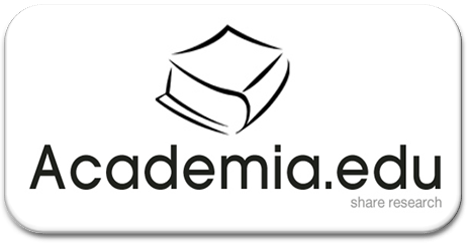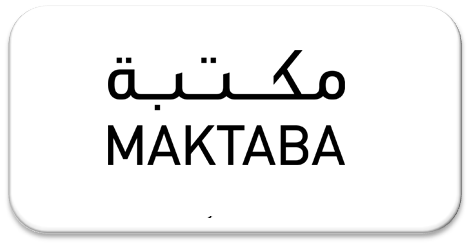Kondisi Sosiokultural yang Mempengaruhi Pemanfaatan Bantuan PKH di Nagari Sungai Sariak
Abstract
The Family Hope Program (PKH) requires aid recipients to utilize the aid received in the education and/or health sectors. However, in implementation, there are still various ways of utilizing aid, this is due to the different socio-cultural conditions in each community. This research aims to determine the sociocultural conditions that influence how PKH assistance is utilized. The research was conducted in Nagari Sungai Sariak, one of the Nagari in Padang Pariaman Regency which has the most recipients of PKH assistance. This research uses qualitative research methods and a case study approach, and collects data by means of observation and interviews. The results of this research show various ways of using aid in nagari, some are used to meet educational and health needs, but there are also many other ways, such as buying rice or even buying clothes. This is because of the socio-cultural conditions in the nagari, in the form of the wife having more power at home, so the management of aid is controlled by the wife.
Keywords
Full Text:
PDFReferences
Badan Pusat Statistik, “Profil Kemiskinan di Indonesia Maret 2023”, Badan Pusat Statistik, 17, Juli 2023. diakses dari https://www.bps.go.id/pressrelease/2023/07/17/2016/profil-kemiskinan-di-indonesia-maret-2023.html pada 19 Juli 2023.
Creswell, John W, Penelitian Kualitatif & Desain Riset. Yogyakarta: Pustaka Pelajar, 2014.
Habibullah, et.al, Pemanfaatan Bantuan Sosial Program Keluarga Harapan. Jakarta: P3KS Press, 2017.
Imama, W. N., & Yulistiyono, H, “Pola Perilaku Konsumsi Keluarga Penerima Manfaat Pkh (Program Keluarga Harapan) Di Kelurahan Pejagan Kecamatan Bangkalan Kabupaten Bangkalan”. Jurnal Nusantara Aplikasi Manajemen Bisnis, 5(2), 221-232. 2020.
Kementerian Sosial RI, Pedoman Pelaksanaan PKH Tahun 2020.
Marzali, A, Antropologi & Pembangunan Indonesia. Prenada Media. 2009.
Muin, R., & Rosdiana, R, Efektivitas Program Keluarga Harapan (Pkh) Terhadap Penerima Bantuan Di Desa Laliko Kecamatan Campalagian Kabupaten Polewali Mandar. J-Alif: Jurnal Penelitian Hukum Ekonomi Syariah dan Budaya Islam, 5(2), 130-147.2020.
Nainggolan, T. d, Tinjauan Tentang Pelaksanaan PKH di Indonesia (Studi Tentang Dampak PKH pada RTSM di 7 Provinsi). Jakarta: P3KS Press, 2012.
Permensos No 1 Tahun 2018 tentang Program Keluarga Harapan.
Prakoso, A. B, “Pola Konsumsi Penerima Program Keluarga Harapan (PKH) di Desa Gebangmalang Kecamatan Mojoanyar Kabupaten Mojokerto.” Paradigma, 4(1). 2016.
Raidar, U., & Junaidi, J, “Perubahan Pola Adaptasi Masyarakat Miskin Penerima Manfaat PKH di Masa Pandemi Covid-19.” SOSIOLOGI: Jurnal Ilmiah Kajian Ilmu Sosial dan Budaya, 23(2), 189-210. 2021.
Sugiyono, Metodologi Penelitian Kuantitatif, Kualitatif Dan R&D. Bandung: ALFABETA, 2013.
Syahrial, S., & Desrina, T, “Implementasi Program Keluarga Harapan (PKH) Dalam Menanggulangi Kemiskinan (Studi Kasus Di Kecamatan Pariaman Timur Kota Pariaman.” Jurnal Ekonomika Dan Bisnis (JEBS), 2(2), 58-74. 2022.
DOI: https://doi.org/10.29103/jumasi.v1i4.12178
 Article Metrics
Article Metrics
 Abstract Views : 192 times
Abstract Views : 192 times
Refbacks
- There are currently no refbacks.
Copyright (c) 2024 shahibul ihsan, Syahrizal Syahrizal, Sri Meiyenti

This work is licensed under a Creative Commons Attribution-NonCommercial 4.0 International License.
OFFICE:
Gedung Fakultas Ilmu Sosial dan Ilmu Politik Universitas Malikussaleh. Kampus Bukit Indah Jln. Sumatera No.8, Kec. Muara Satu Kota Lhokseumawe, Prov. Aceh, Indonesia. email: jumasi@unimal.ac.id
This work is licensed under a Creative Commons Attribution-NonCommercial-ShareAlike 4.0 International License





.png)






.png)









